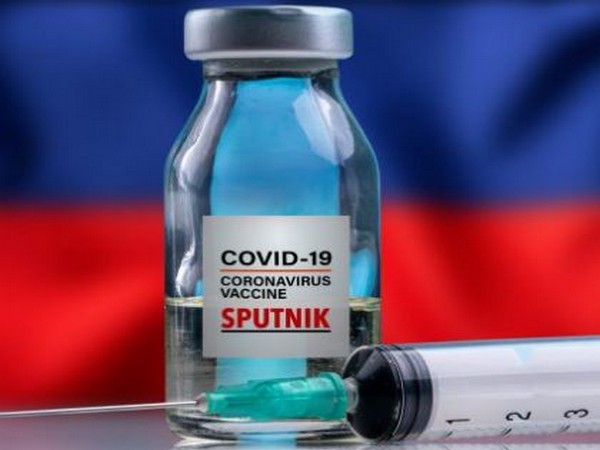Health News Roundup: Data suggests mRNA booster dose generates stronger antibody response after J&J shot - Axios; Russia's one-shot Sputnik Light vaccine 70% effective against Delta variant - RDIF and more
The FDA said the approval came after analysis of data from the manufacturer that showed that using Vuse's tobacco-flavored products could help users reduce exposure to harmful chemicals emitted by combustible cigarettes. Texas vaccine mandate ban likely to be trumped by federal law but could cause uncertainty Texas Governor Greg Abbott's ban on COVID-19 vaccine mandates will likely be superseded by the Biden administration plan to require shots for workers, but the dueling rules could take months to sort out in court, creating uncertainty for employers with business in the state.

Following is a summary of current health news briefs.
Data suggests mRNA booster dose generates stronger antibody response after J&J shot - Axios
People who received Johnson & Johnson's COVID-19 vaccine will have a stronger neutralizing antibody response if they get an mRNA shot as the second dose, Axios reported on Tuesday, citing a person who has seen data collected by the U.S. National Institutes of Health (NIH). J&J has asked the U.S. Food and Drug Administration (FDA) to approve a shot of its own single-dose vaccine as the booster dose. The FDA's advisers are set to consider the need on Friday.
Russia's one-shot Sputnik Light vaccine 70% effective against Delta variant - RDIF
Russia's one-shot Sputnik Light vaccine shows 70% effectiveness against the Delta variant of coronavirus three months after injection, the Russian Direct Investment Fund (RDIF) said on Wednesday, citing the vaccine's developer. The data was submitted by the developer, the Gamaleya Institute, to medical website medRxiv ahead of a peer review and based on 28,000 participants who received a dose of Sputnik Light, compared with a control group of 5.6 million individuals who were not vaccinated, it said.
Roche says Ocrevus drug reduces need for walking aids for MS patients
Roche said its Ocrevus treatment showed fewer patients with relapsing multiple sclerosis needed walking aids, the company said on Wednesday. There was a 35% reduction in the need for a walking aid in patients with relapsing multiple sclerosis (MS) after seven and a half years of taking Ocrevus, the company said. There was also a 29% reduction in the 48-week progression in primary progressive MS after 8 years after starting taking the drug, it added.
Italy divided as mandatory workplace COVID pass looms
COVID-19 health passes will be mandatory for all workers in Italy from Friday, a measure that some politicians, unions and businesses fear will cause shortages and disruptions rather than boost inoculations and output as the government hopes. Prime Minister Mario Draghi's cabinet approved the rule - one of the world's strictest anti-COVID measures - in mid-September, making it obligatory from Oct. 15 for all workers either to show proof of vaccination, a negative test or recent recovery from infection.
U.S. FDA staff says Moderna did not meet all criteria for COVID-19 boosters
Scientists at the U.S. Food and Drug Administration said on Tuesday that Moderna Inc had not met all of the agency's criteria to support use of booster doses of its COVID-19 vaccine, possibly because the efficacy of the shot's first two doses has remained strong. FDA staff said in documents that data for Moderna's vaccine showed that a booster does increase protective antibodies, but the difference in antibody levels before and after the shot was not wide enough, particularly in those whose levels had remained high.
U.S. FDA recommends lower sodium in processed, packaged foods
The U.S. Food and Drug Administration on Wednesday issued a recommendation for reduced salt in commercial food products, citing a growing epidemic of preventable, diet-related conditions in the country. High sodium intake has long been linked to high blood pressure, which is a leading cause of heart attacks and strokes.
U.S. FDA gives marketing nod to an e-cigarette for the first time
The U.S. Food and Drug Administration (FDA) on Tuesday allowed British American Tobacco Plc (BAT) to market its Vuse Solo e-cigarettes and tobacco-flavored pods, making it the first-ever vapor product to get clearance from the health regulator. The FDA said the approval came after analysis of data from the manufacturer that showed that using Vuse's tobacco-flavored products could help users reduce exposure to harmful chemicals emitted by combustible cigarettes.
Texas vaccine mandate ban likely to be trumped by federal law but could cause uncertainty
Texas Governor Greg Abbott's ban on COVID-19 vaccine mandates will likely be superseded by the Biden administration plan to require shots for workers, but the dueling rules could take months to sort out in court, creating uncertainty for employers with business in the state. The Republican governor signed an executive order on Monday banning private employers and other entities from imposing COVID-19 vaccine mandates, which he said threatened an economic recovery by disrupting the workforce.Some large employers are betting that federal law and President Joe Biden's vaccine mandates will trump Abbott's executive order.
'Virtually painless' needle-free injections developed in Netherlands
Researchers in the Netherlands are developing laser technology to enable "virtually painless" injections without needles in what they call a breakthrough that will ease fear and lower the threshold for vaccinations. The "Bubble Gun" uses a laser to push tiny droplets through the outer layer of the skin, said David Fernandez Rivas, a professor at Twente University and research affiliate at the Massachusetts Institute of Technology who founded the idea.
(This story has not been edited by Devdiscourse staff and is auto-generated from a syndicated feed.)










